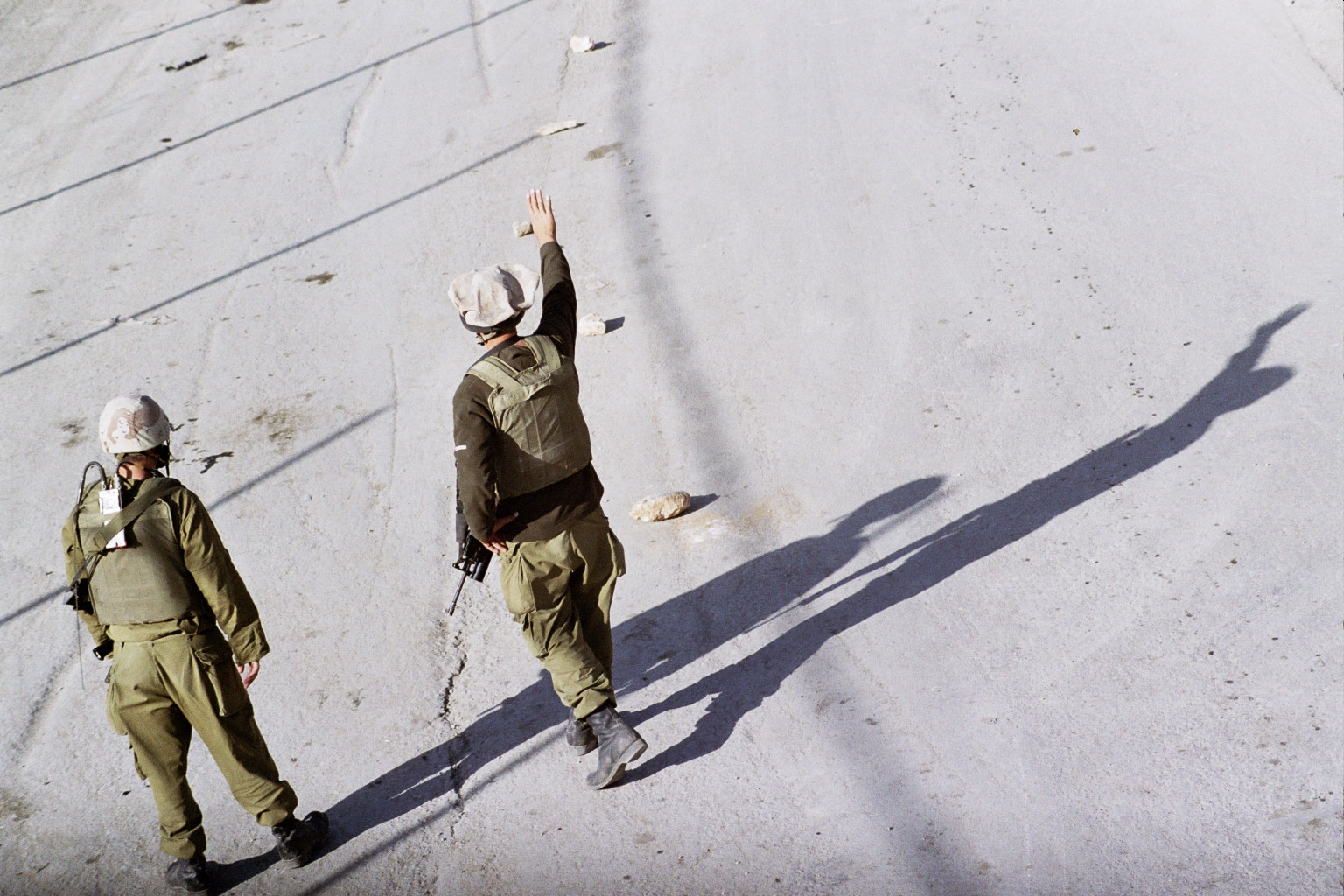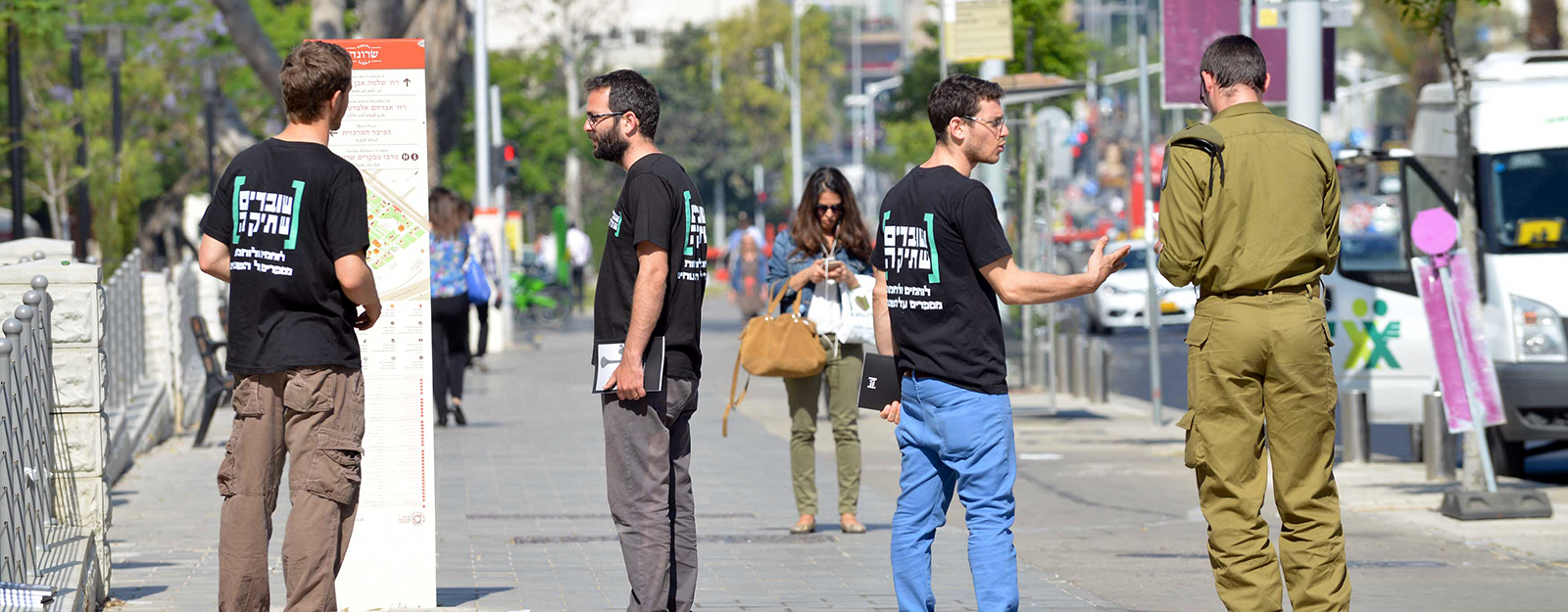You reported it to the army, or the police? The army, police, everyone.
And what happened afterward? The Sharabati house is complicated. The report went to the brigade commander. The brigade commander turned it into a very drawn-out process. You know, he didn’t freeze it, but he didn’t deal with it for a long time. He didn’t want to get into a confrontation with the Jewish settlement; it was a sensitive time, after everything else.
Who was the brigade commander then? The brigade commander was ——. He delayed it. You don’t want to get into a confrontation with the Jewish settlement. They’re the people who are closest to you, they’re like your operations branch officer, that’s how it works. At first he delayed things and didn’t really deal with it, but there was pressure to act. There was pressure from above the legal adviser, the legal adviser went to clarify things, and then the report didn’t go to the captain legal adviser, rather to ——, who was a colonel, and —— wanted results. So things really started to move. The army blocked off the house, put up a fence, and today there are concrete blocks there. I don’t remember anymore, but I think they fenced off the, whatever, and there was a period where they had soldiers guarding it. People broke in all the time, it was broken into once a month.
Were there other “Sharabati houses”? No, but I remember one time settlers burned down a Palestinian house on a Saturday. A house right across from the cemetery. I remember that kids, twelve years old at most, totally burned down the house. I don’t know what it’s like today. I took photos of the inside. I went to Harat a-Sheikh to escort the fire truck, a Palestinian fire truck which put out the fire, because Kiryat Arba wouldn’t agree to send their fire truck. It was Shabbat, and they said that they don’t drive the fire truck on Shabbat unless it’s an emergency.
And the fire was burning during this whole time? Yes. The fire was burning down a house across from the Muslim cemetery.
Was the house empty? No, it wasn’t empty. When they burned it down, no one was there, and afterward I coordinated with the Palestinians so they could come and take whatever remained. I escorted them and helped them with moving.
Who took things? The Palestinians who lived there. It was their house.
You’re saying there was food in the fridge. A woman was living there. She wasn’t home when the kids broke in and burned it. She was with her family in Abu Sneina, maybe with her son or someone from her family.
She’d been living there on a regular basis? No. She lived there, but not on a daily basis. The house was orderly, clean even, but could I say for sure that she was there all week, or every two days? I don’t know. After the house burned down, she wasn’t there anymore.
Were you involved with the wholesale market during that time? The wholesale market, I did legal work . . . In general, after the fire, which was sometime in 2003, I started doing a lot of work with the Jewish settlement, not with them, with the legal adviser on how to advance the issue of the Jewish settlement and how to prevent violence by working in cooperation with the Israeli police. I was a committee member, a military committee, with the Civil Administration, the police, the legal adviser. We wanted to figure out how to curb the violence, which increased dramatically sometime in 2003—there was suddenly a huge jump in violence.
What caused the sudden jump? I’m not sure what caused it—after that house burned down, there was a weekend of intense violence, I don’t know why. Maybe there was a terrorist attack, I don’t know, there was definitely something. So I got angry and I called —— and I spoke with him, and I also spoke with the brigade commander that Saturday, and I spoke with the operations coordinator of the government in the Territories, and they decided they’d figure out a system to deal with it, but their system didn’t work because it had no teeth.
Did the police in Hebron have any power? No, any decision to regulate the violence within the Jewish population has to come from above, there’s nothing the police can do. You just need to decide, the police commissioner needs to say “Stop.” And no one will . . .
But a representative from the police is on the committee? Didn’t the police complain about their lack of manpower? Say that they’re incapable of working under these conditions? That they need reinforcements? Didn’t the representative say things like that at the committee? No, he didn’t say anything like that. The police always complain about a lack of manpower, always, but . . . What were the committee’s complaints? That there was a lack of manpower, so they talked about what days to have additional people or no additional people, how to reinforce the station, how not to reinforce the station—all these things are administrative. I was powerless, I really didn’t have any say.









 testimonies
testimonies  media & content
media & content 










 The brigade commander didn’t want to get involved
The brigade commander didn’t want to get involved 

 terms of use & privacy policy
terms of use & privacy policy